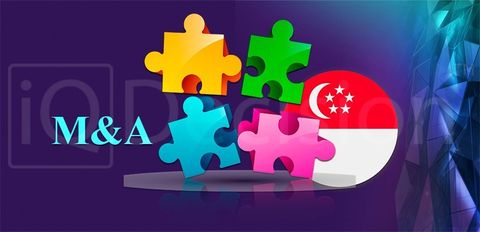Typically, acquisitions of business in Singapore and assets of private companies are made on the basis of a sale contract. Deals can also be structured in the form of a contractual offer. They may include the expulsion of minority shareholders or the statutory merger procedures. Next, we will describe in more detail the regulation of private M&A transactions in Singapore.
What makes a deal a success?
The M&A process involves a strategy to consolidate assets in a manner that preserves and increases overall business value. The success of a deal depends on many factors such as the type of business, the number of parties involved, and if they are able to negotiate key conditions without increasing the price. Much depends on whether the transaction involves negotiations or an auction process. The whole process to finalize the deal may take a long time to market, negotiate, and close. From inception through consummation, a period of more than one year may pass.
How to enter into a company sale contract in Singapore?
The first step to enter a deal is to sign an NDA. In the case of the bilateral acquisition, the parties often conclude a memorandum of understanding and/or a protocol of intent. As a rule, this is not legally binding.
Due diligence of companies in Singapore
The next step, which should not be missed, is to conduct a comprehensive due diligence procedure. Now it has become a very common procedure, as the requirement of transparency when interacting with a partner is one of the main ones in a serious business. Every company that intends to make an M&A deal wants to be confident in its reliability and further profitability. Such confidence can only be based on complete and reliable information about a potential partner. Its collection is carried out in the process of due diligence. The whole complex includes legal, financial, and tax audits.
The main purpose of the event is the complete elimination of business risks, including tax, economic, legal, and marketing. And if this is not possible, their minimization to an acceptable level. This is followed by the preparation, discussion, and execution of final documents on the transaction.
Ownership rights
A share transfer is a process of transferring existing shares from one person to another, and it must be approved through a board agreement.
The transfer of company shares in Singapore shall not take effect until the company's electronic register has been updated to show the new share structure within your company. The buyer will become the legal owner of the shares only after entering information about the company in the register. Some kinds of assets, such as land, must be officially transferred or transferred to the Land Registry of Singapore. In such cases, the consent of third parties may be required.
The buyer of assets in Singapore has the right to choose which assets or liabilities he wishes to acquire. The management team of the acquiring company has to take steps to maximize cost synergies to help finance the acquisition. This may lead to job losses for employees in backward departments. However, it is noteworthy that there are always obligations that apply to certain personnel, which by law are automatically transferred to a new company upon completion of the deal.
We have provided a brief analysis of how private M&A transactions take place in Singapore, which documents are to be prepared in the initial stages, which ownership is acquired by the buyer, what determines the duration of the transaction, and so on. If you want to get more information on this topic, you have the opportunity to schedule a consultation on private M&A transactions in Singapore from experienced legal professionals of our company. Please reach out to us by filling out a feedback form below.


















